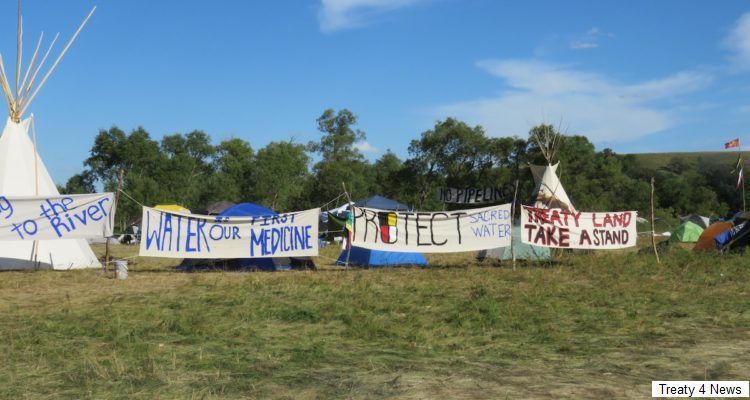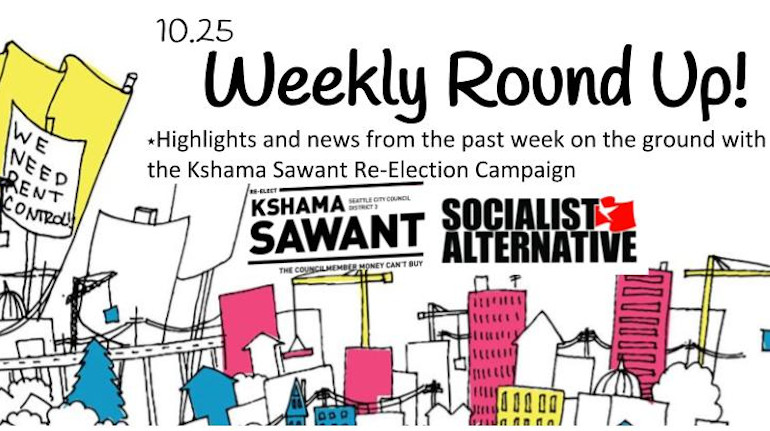
During last year’s Federal election Justin Trudeau made lots of speeches about changing the relationship with First Nations and protecting the environment. The Liberal election platform promised “a renewed, nation-to-nation relationship with Indigenous Peoples, based on recognition, rights, respect, co-operation, and partnership.” They stated that they “will provide national leadership and join with the provinces and territories to take action on climate change.”
The government just announced that they would introduce a carbon tax of $10 a tonne in 2018, rising to $50 by 2022, unless the provinces do it first. They claim this action on global warming is in line with the commitments they made at the Paris Climate conference.
However, the Liberal government’s actions in BC are not in line with these commitments. Instead, they are supporting environmentally damaging proposals, which will make it almost impossible to keep to the commitment made in Paris of only a 1.50 C in global temperature.
Site C: “betrayal”
In the summer, the Federal government granted the necessary permits for the Site C dam in northern BC to go ahead. The dam will flood valuable farmland at a cost of at least $9 billion to produce power that is not needed.
They went ahead in spite of the opposition of local First Nations and the Assembly of First Nations. The National Chief Perry Bellegarde stated that, “The Site C dam project threatens to flood thousands of acres in Treaty 8 territory. This is a violation of First Nations’ inherent and Treaty rights.” The leader of BC’s First Nations, Grand Chief Stewart Philips, said that that giving the go-ahead is “an absolute betrayal.”
Amnesty International, the David Suzuki Foundation and the Royal Society of Canada have also called for a halt to the dam’s construction. UNESCO is investigating concerns about the dam’s impact on Wood Buffalo National park, a World Heritage site.
Petronas LNG: “Amongst the largest single point sources of greenhouse gas”
If agreeing to Site C was not bad enough, a few weeks later the government gave federal go-ahead to the proposed Petronas Liquid Fracked gas pipeline and export plant on the BC coast. According to Petronas, the entire project (extraction, pipeline and liquefing plant) will cost $36 billion over 30 years and provide only 330 direct long-term jobs. It would also emit at least 12 million tonnes of carbon dioxide every year for 30 years from the liquefaction plant, extraction and transportation. Environment and Climate Change Canada stated it would be “amongst the largest single point sources of greenhouse gas emission in the country.”
The only justification for the Site C dam is if the power is used to extract fossil fuels, either of fracking gas or in the tar sands. Both of these will make reducing carbon dioxide in the atmosphere much harder. The very limited impact of any carbon tax would be cancelled out by the gas fracking or expansion of the tar sands.
Why is the Liberal government going out of its way to anger First Nations and environmentalists over these decisions? There are few or no financial or political benefits to the Federal government from these proposals. They are, of course, vital to the BC Premier, Christy Clark. She won the last provincial election promising a huge liquid gas bonanza. With less than a year to the next election, she is desperate to have something to show for all of this.
In an attempt to move ahead on the Pacific Trail pipeline to Kitimat, the BC government linked agreement to the LNG pipeline with funding for First Nations’ child welfare. The BC Ministry of Aboriginal Relations and Reconciliation wrote to the Wet’suwet’en hereditary chiefs in a letter entitled “BC’s offer with respect to proposed natural gas pipelines,” which included “continued funding” for child welfare program with a $25,000 cheque. Wet’suwet’en returned the cheque.
The BC government has agreed a sweet deal for Petronas, but not for BC workers and taxpayers, with subsidies, very low taxes, permission to hire foreign workers and allowing the out-sourcing of most of construction. This means lower cost for Petronas and very few good paying jobs.
Petronas would also be bad news for fisheries and the people who rely on salmon. It plans to build a plant to liquefy and ship the gas on Lelu Island at the mouth of the Skeena River. The Skeena has BC’s second largest salmon run, with an estimated annual value of $100 million. These salmon are vital to the indigenous people of this region. When the juvenile salmon reach the river mouth they spend time in the eel grass there before swimming out into the ocean. The Lelu Island plant would damage an area which 88% percent of the Skeena salmon run uses.
Yet, the Federal Liberal Fisheries Minister Dominic LeBlanc, claimed that the Petronas proposal would “bring great economic benefit to middle-class British Columbians and First Nations.” What planet does he live on – spending $36 billion for 330 jobs – while destroying the salmon run and adding to the global devastation from the release of CO2?
The same money used to produce renewable energy, insulating buildings and providing public transit would provide over 200,000 jobs and protect the environment.
What Does Trudeau Want?
Clearly granting the permit for Petronas and Site C will please BC’s Premier Clark. Perhaps that is Trudeau’s motive? He will want something in return. Approval for the Kinder Morgan pipeline of tar sand bitumen to Vancouver, perhaps?
Trudeau wants a pipeline from the tar sands to the coast. The National Post reported that “Trudeau has told his senior lieutenants to draw up plans to make the Energy East pipeline and the Trans Mountain expansion in BC a reality.”
Energy East is stalled after a series of embarrassing revelations that two of the members of the review panel discussed the pipeline with Jean Charest, former Québec premier, a consultant for the company behind Energy East, TransCanada. Amazingly, at first they and the Federal Liberals thought this was fine. It took public protests to force the two to resign and since then the process has been delayed. Energy East faces massive opposition all along its path.
It seems more and more likely that Trudeau will try to get the pipeline to the sea through Vancouver. Maybe he hopes that after giving Premier Clark what she wants, he will get something in return.
No Trust in Trudeau: Build our Movement
Relying on the Federal Liberals to protect the environment was always an unrealistic prospect. They are the party of Bay Street and big business. Initially Trudeau defended his national election campaign co-chair, Gagnier, who advised Energy East about how to lobby the Liberals once they won the election.
The way to stop the pipelines is to build a powerful campaign, linking indigenous and non-indigenous struggles. The stand at Standing Rock and the Treaty Alliance Against Tar Sands Expansion are important parts of the struggle. The Treaty brings together over 50 First Nations from Canada and the US to support each other to stop all the proposed tars sands pipelines.
At Standing Rock, thousands have joined in solidarity with the reserve residents to protect drinking water and grave sites from the construction of the Dakota Access pipeline. This proposed pipeline would carry fracked crude oil. Security guards set on peaceful protesters with pepper spray and attack dogs. This shows the contempt these fossil fuel corporations have for First Nations, the democratic process and the environment – they are only interested in boosting profits. One of the companies behind the pipeline, is Enbridge with an investment of $1.5 billion, which wants to build tar sands pipelines in BC and the prairies.
As well as the attacks from company security, the people at Standing Rock have faced assault and mass arrests by the local police – but are still standing strong with growing support from indigenous and non-indigenous people across North America.
It is not Trudeau and the Liberals who will act to protect the environment. Instead, it is movements like the one at Standing Rock that with will create the change that is needed.
Socialist Alternative says:
- End the corporate domination of energy. For the public ownership of the top energy companies to protect jobs and convert them to clean energy
- Massive public investment in clean renewable energy, housing and building insulation and retrofitting, and energy saving to quickly move to a clean energy system.
- Invest in public transport to provide comprehensive, low fare, high-speed, and accessible mass transit. High quality freight and rapid inter-city rail.
- Provide guaranteed paid re-training and new good paying jobs in socially-useful production for all workers in phased-out industries.
- Abide by and respect indigenous treaties and resource rights.



